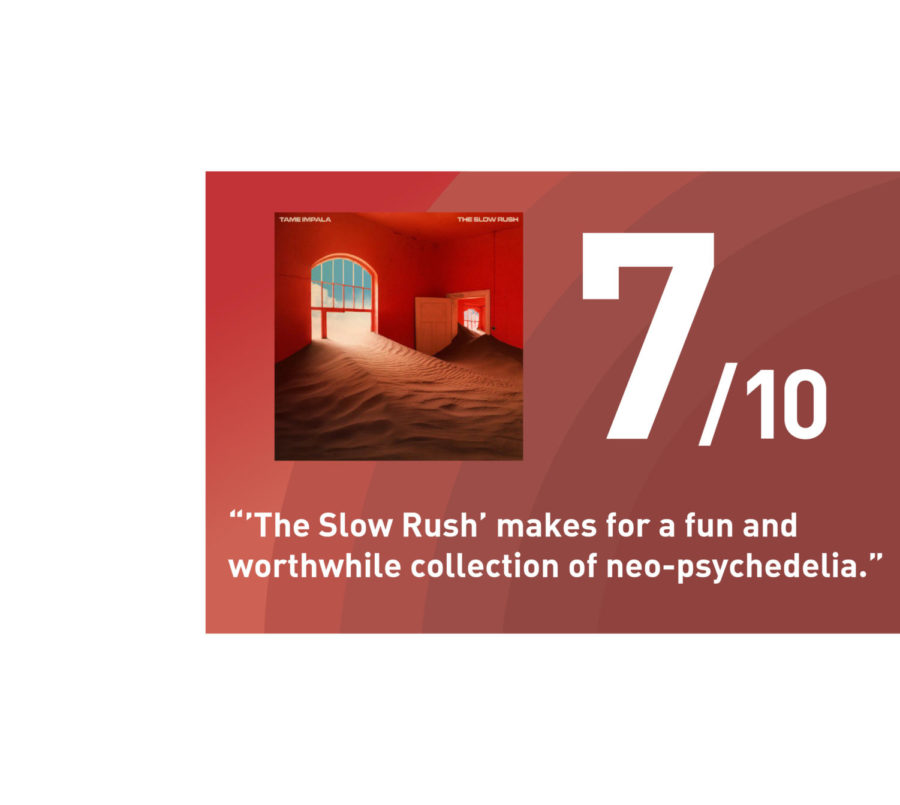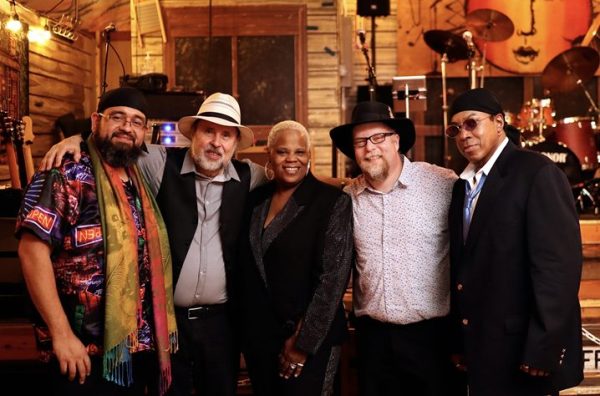Review: Tame Impala explores self over sound on ‘The Slow Rush’
February 23, 2020
“The Slow Rush” finds Tame Impala at a defining moment in Kevin Parker’s artistic timeline.
With more attention directed at a new release than ever before, what Parker came up with in the five years since “Currents” feels like a genuine work of stylistic and thematic exploration — without being a full-on sonic excursion.
As the one-man-band behind Tame Impala, Parker follows up on the crossover sound of his breakthrough 2015 album “Currents” with his new album “The Slow Rush.”
While the first Tame Impala album “Innerspeaker” and follow-up “Lonerism” worked in a guitar-driven psychedelic-rock arena, Parker went on to “Currents” expanding his strengths to create a wide-reaching psychedelia experience. “Currents” opts for more dreamy, falsetto vocal passages, an expanded synthesizer palette, more groovy instrumentation and less progressive but more spacious musical pathways.
“Innerspeaker” and “Lonerism” brought a sound seemingly ripped straight from a 1960s vinyl record at psychedelic-rock’s peak, while “Currents” tweaks that sound for today’s pop-, R&B- and hip-hop-hungry audience.
“Currents” presented a sound attracting more mainstream listeners, but the musical shift reads more as a logical artistic progression for Tame Impala rather than a calculated business decision.
“Lonerism” saw Tame Impala strip away it’s psychedelic rock purities from “Innerspeaker” to form a more adventurous and unique experience, while on “Currents,” Tame Impala embraced a pop-oriented approach without alienating their fans or forgetting their psychedelic rock roots.
While not an artistic evolution of the likes seen between Tame Impala’s previous releases, “The Slow Rush” operates in a groovy and psychedelic-pop space in the band’s most easy-listening form.
While this premise isn’t a negative on paper, the outcome on “The Slow Rush” yields moderate results.
The biggest weakness behind “The Slow Rush” is the quality of the album’s singles versus material kept for the full release.
The first single, released nearly a year before the album’s ultimate release, “Borderline,” while extremely straightforward, packs an infectious hook behind warm keys and playful synths for “bop” status.
Among the other singles, such as “It Might Be Time,” “Lost In Yesterday” and “Posthumous Forgiveness,” teased a more personal, introspective approach to Tame Impala’s lyrical and thematic content.
“Lost In Yesterday” explores his obsession with nostalgia through one of his most upbeat and energetic pop-centered songs to date.
“Posthumous Forgiveness” is an atmospheric, six-minute, guitar-led ballad where Parker wrestles with the absence of his father.
“It Might Be Time” discusses Parker’s fear of staying relevant in the fast-paced music industry while dealing with changes in personality and the passage of time. The track features one of the most highlighted displays of drumming on a Tame Impala song.
Parker’s artistic train of thought up until the “The Slow Rush” felt like a natural evolution of sounds, but now that train of thought seems to slow and wind through brief, adequately scenic detours.
While this is the musical journey Parker takes on “The Slow Rush,” it’s linked to his personal journey.
Through his increasing anxiety with growing old, looking more to the past, maintaining his relevance and not “being what he used to be,” it’s fitting for Tame Impala’s music to be less daring and more subdued.
However, this existential crisis isn’t significantly explored in a psychedelic odyssey on “The Slow Rush.”
Yes, the themes hinted in the singles are touched on further in songs such as the ambient and ethereal opening track “One More Year.” The explosive track “Instant Destiny” explores decision-making and compulsiveness, as it relates to life’s outcomes. “Breathe Deeper” is a rewardingly repetitive groove about the unexpected virtue of being uncomfortable.
However, the sum of “The Slow Rush” is a single-oriented album lacking the experimental depth for Tame Impala’s increasingly existential and personal themes to fully culminate. While the easy-going tone adopted on “The Slow Rush” makes for a fun and worthwhile collection of neo-psychedelia, it ultimately limits itself as an experience.

















